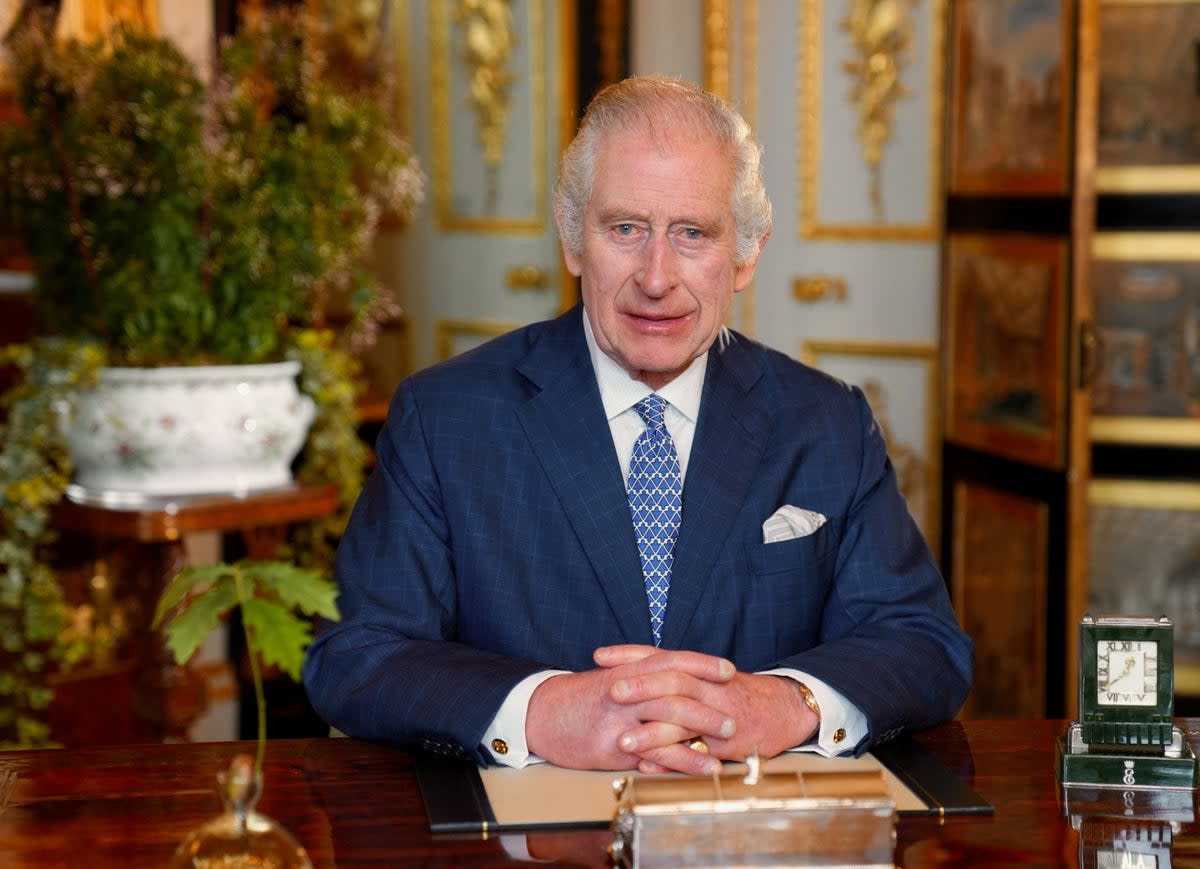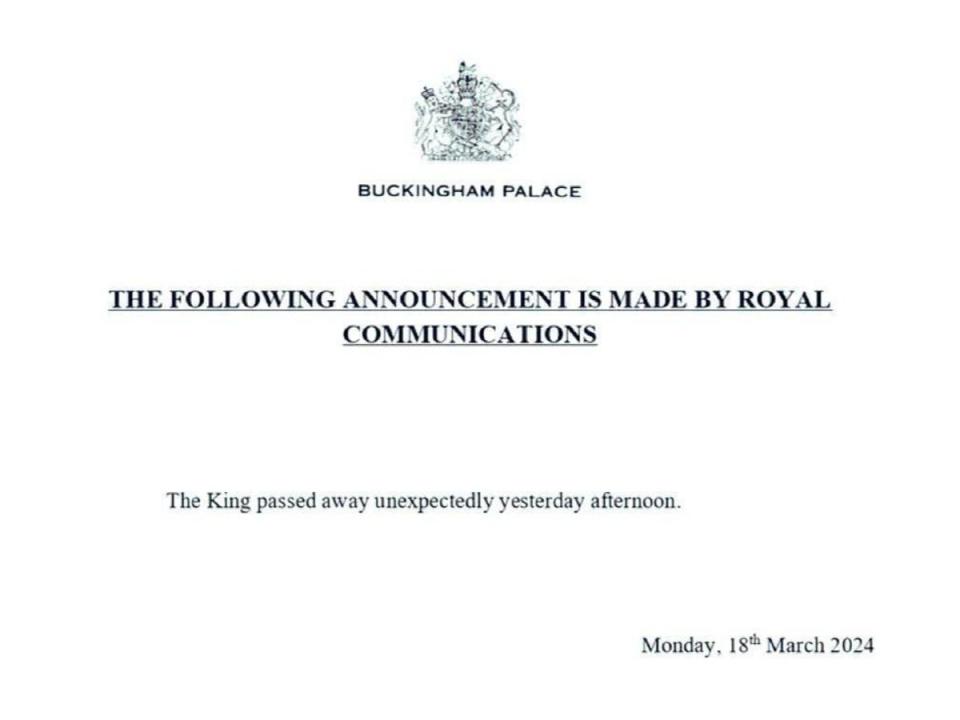British Embassy denies Russia’s fake King Charles death story

The British Embassy in Ukraine has been forced to deny rumours that King Charles III has died after Kremlin-approved state media channels, some with millions of followers on social media, began spreading the fake news.
The first false claims appeared out of nowhere on the Telegram messenger service on Monday afternoon. A photoshopped image with the Buckingham Palace logo on the top read: “The following announcement is made by royal communications. The King passed away unexpectedly yesterday afternoon.”
Monday’s date was then posted on the bottom of the fake letter, which appears to have been modelled on the palace’s announcement of the late queen’s death that said: “The Queen died peacefully at Balmoral this afternoon.”
Multiple smaller media sites, including a Telegram channel used by Vedomosti, once Russia’s most respected business newspaper, initially shared this post. All cited “media reports” as evidence of the fake story.
Several of Russia’s most followed state media sites quickly picked up the story, posting a picture of King Charles in military uniform.
🇬🇧 We would like to inform you that the news about the death of King Charles III is fake. pic.twitter.com/Ilg2GZn0mo
— UK in Ukraine 🇬🇧🇺🇦 (@UKinUkraine) March 18, 2024
“British King Charles III died at the age of 75, media reports,” wrote Readovka, a Telegram channel with more than 2 million followers.
“Russian media reported the death of British King Charles III with reference to a document allegedly published by Buckingham Palace,” wrote Baza, another channel with roughly 1.2 million followers.
Within minutes, both channels either edited their original posts (in the case of Baza) or issued corrections (in the case of Readovka) stating that the story had “âânot yet been confirmed by official sources”. And half an hour later, Tass, the Russian government-owned news agency, claimed they had spoken to Buckingham Palace, who had confirmed the King “continues to perform work duties and attend to private affairs”.
But by that time, the story had already gone viral.
A leading television station in Ukraine reposted the story, as did several other prominent channels with hundreds of thousands of followers.
The story even travelled as far as Tajikistan, where Asia-Plus, its biggest independent media outlet, had done a write-up.
After several hours, during which all the major Russian state channels had backtracked but the story had nonetheless spread, the British embassy in Ukraine was forced to issue a denial.

“We would like to inform you that the news about the death of King Charles III is fake,” a spokesperson tweeted out on X. The British embassy in Moscow also denied the claim.
It is unclear whether the fake story was deliberately pushed by Russian state media channels to sow chaos or if the outlets made a mistake.
But the British Ministry of Defence has previously warned that Russian media, all under the strict control of Vladimir Putin’s regime, is being mobilised to spread disinformation against the West, often merely by publishing nonsensical fake stories.
Millions of Ukrainians, as well as Russians, rely on Telegram and other social media sites for their news - and have no access to British press. And many stories that do no make it onto the official sites of Russia’s state media will be posted on their Telegram channels.
In any case, King Charles, who was diagnosed with cancer earlier this year, is expected to be attending his official birthday celebrations in June.
Palace aides are looking into how King Charles can participate in the festivities on 15 June as he continues to carry out his duties in private following his cancer diagnosis.


